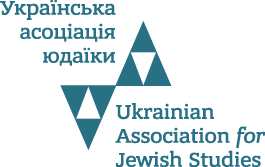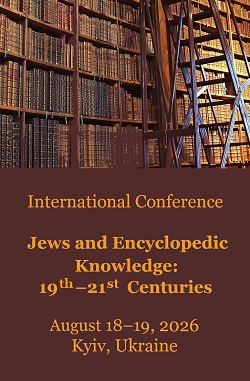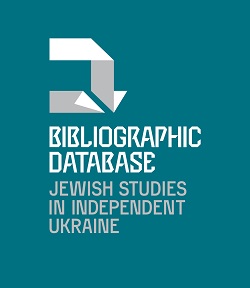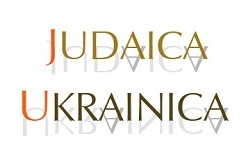2024-12-04

International Conference
Sex, Gender, and Liberation of the Jews
in Eastern and Central Europe (1860–1945)
June 24–25, 2025, Uzhhorod, Ukraine
Organizer: Ukrainian Association for Jewish Studies
The conference is supported by the European Association for Jewish Studies, FemAid and Babyn Yar Holocaust Memorial Center
The Ukrainian Association for Jewish Studies invites proposals for presentations at an international conference on Jews and gender issues in Eastern and Central Europe in the second half of 19th and first half of 20th century.
The status of Jewish women has been traditionally held to be inferior to that of men, according to religious prescriptions, even though in daily life, women in Ashkenazi society were often the head of large households which they ran single-handedly while their men’s existence was centered in the superior spiritual world, supposedly in direct continuity with pre-Diasporic times.
The 19th century in Eastern and Central Europe saw radical change which led to a process of empowerment of women on every level and that at an amazing speed. Starting in the late 18th century in the Habsburg Empire, under the influence of the Enlightenment, it spread to the Russian Empire a few decades later. How and why did such radical questioning of their traditional environment and culture develop and lead to personal revolt and the violent desire to live out an independent life in the public and even political arena — a terrain that had been hitherto totally masculine and more often than not Gentile? From one generation to the next, Jewish women evolved more rapidly than at any other period in their long history. Of course, the class issue is all important: the wealthy Jewish burghers, traders and bankers of Bohemia, for instance, were more likely to accept progressive ideology than their poor rural contemporaries. But that too, as we shall see especially in the Pale of Settlement of the Russian Empire where the world of the shtetlekh was slowly disintegrating.
Certainly, the thinkers of the Haskalah sought to reform Jewry in order to integrate their members into society through modern education (perceived as the opposite of the kheder), access to professions (e.g., law and medicine), not forgetting clothing. This hitherto unthinkable introduction to the notion of progress naturally met the approval of the Austro-Hungarian and Russian authorities on patriotic grounds. These powers hoped that the acculturation of minorities would unify their vast domains and perhaps lead to the disappearance of the particularities of this troublesome community.
The maskilim were influenced by the Western European Enlightenment’s bourgeois ideal of the domesticated but educated wife and mother nurturing her offspring in modernist thinking in the comfort of her home whilst her mate devoted himself to earning money to support them — an ideal that at best could suit the wealthiest but was very far from the reality of everyday Jewish life.
Naturally this ideology was promoted by the unique changes at every level of society that was bound to influence the hitherto largely rural Jewish communities. Industrialization, mass immigration, revolutionary political movements (specifically Jewish ones such as the Bund and Zionism) as well as the whole gamut of socialist and anarchist tendencies, social mobility, secular education and professionalization of men and women all contributed to transform gender relations and especially the fate of Jewish women faced with a dizzying spectrum of hitherto unimaginable possibilities.
Education of women in fact did not automatically lead to a bourgeois conformity but on the contrary bolstered personal empowerment whilst reshaping traditional female Jewish cultural capital, that which women had always exercised within the household and interaction with the outside world whilst their husbands sat in kheders. This was especially true in the Russian Empire. The Jewish community of the late 19th and early 20th century produced the largest number of female revolutionaries ever seen and this trend was further developed through immigration with unique activists born in this region such as Emma Goldman and Anna Kuliscioff, or Kyiv-born Golda Meir.
Keynote speakers:
Prof. Eliyana Adler (Binghamton University, USA)
Dr. Carol Mann (Paris 8 University, France)
The working language of the conference is English.
The application deadline is March 1, 2025.
Responses will be sent to the applicants by March 10, 2025.
The organizers will cover accommodation and meals for participants.
The registration form can be found here.
For other questions, please contact the Organizing Committee at conference@uajs.org.ua.




